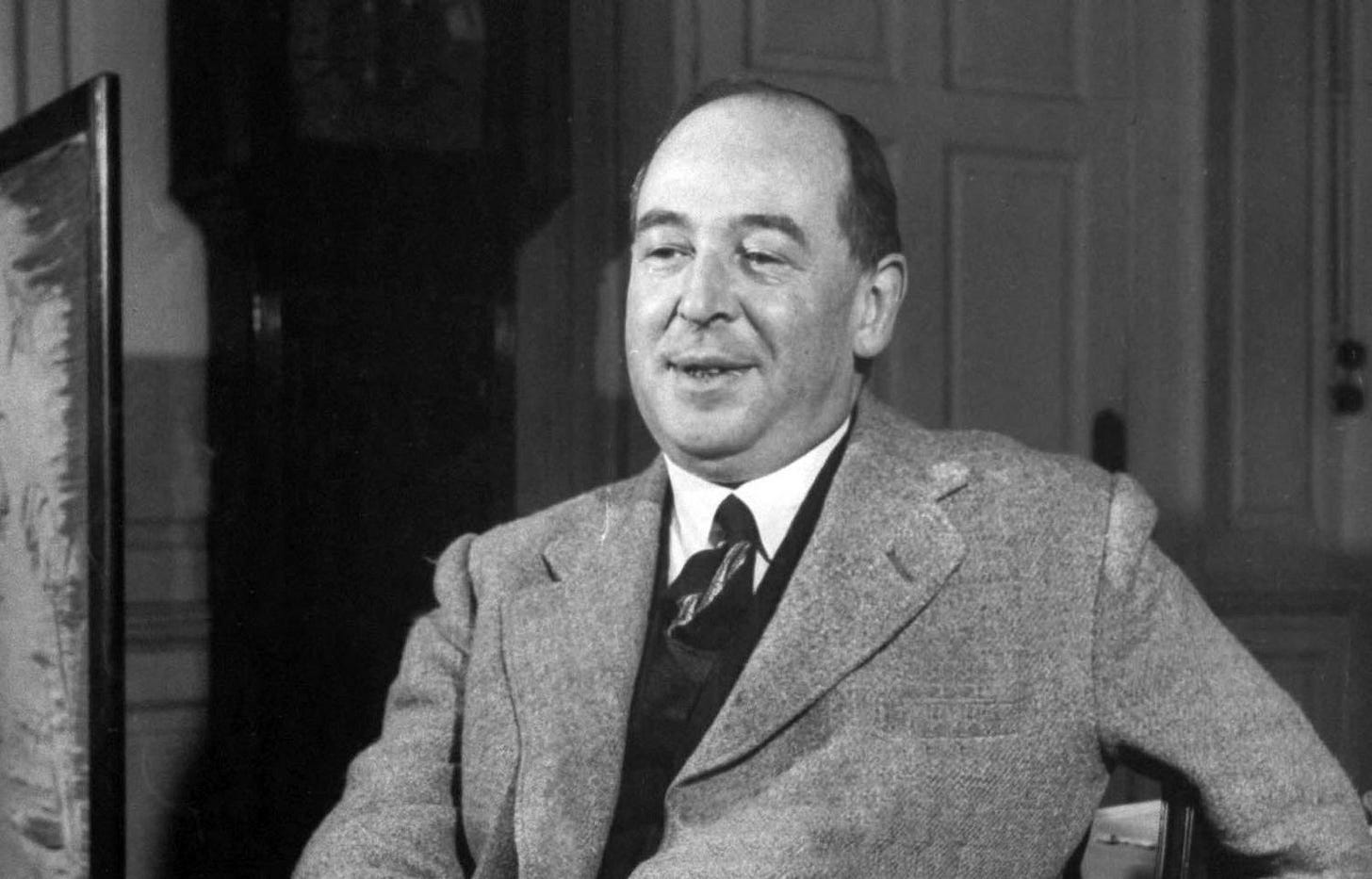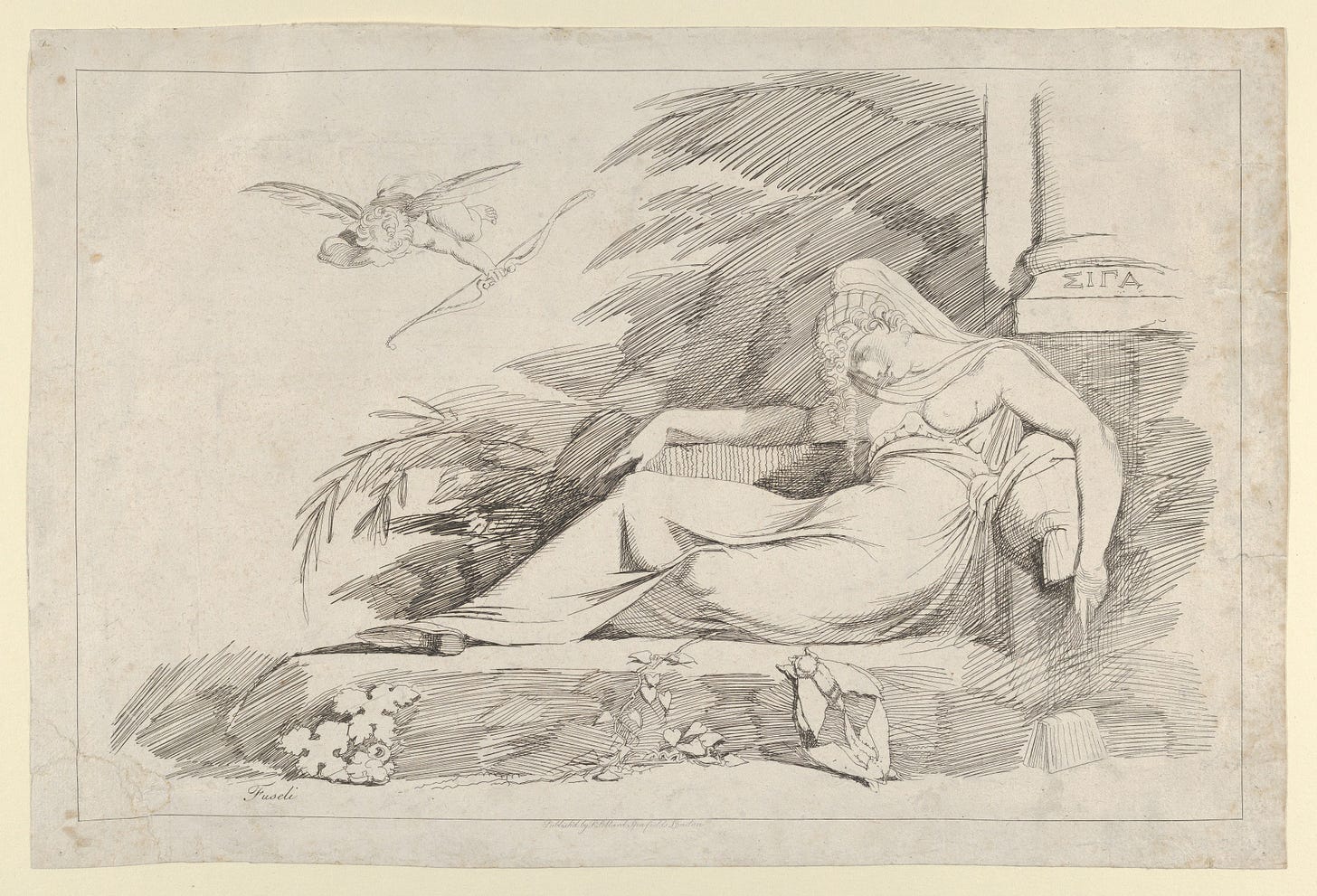Writing Advice from C.S. Lewis, Part 1
Turn off the radio, read all the good books you can, write with the ear, follow your interests
When asked for advice on how to become a better writer, C.S. Lewis sent his correspondent the following list.
Turn off the radio.
Read all the good books you can, and avoid nearly all magazines.
Always write (and read) with the ear, not the eye. You should hear every sentence you write as if it was being read aloud or spoken. If it does not sound nice, try again.
Write about what really interests you, whether it is real things or imaginary things, and nothing else. (Notice this means that if you are interested only in writing you will never be a writer, because you will have nothing to write about . . .)
Take great pains to be clear. Remember that though you start by knowing what you mean, the reader doesn’t, and a single ill-chosen word may lead him to a total misunderstanding. In a story it is terribly easy just to forget that you have not told the reader something that he needs to know—the whole picture is so clear in your own mind that you forget that it isn’t the same in his.’
When you give up a bit of work don’t (unless it is hopelessly bad) throw it away. Put it in a drawer. It may come in useful later. Much of my best work, or what I think my best, is the re-writing of things begun and abandoned years earlier.
Don’t use a typewriter. The noise will destroy your sense of rhythm, which still needs years of training.
Be sure you know the meaning (or meanings) of every word you use.
We should spend a little bit of time unpacking this list — because there is quite a bit of good stuff here. We’ll break this into two parts, with the second installment coming next week.
Turn off the radio
The first thing that any serious intellectual activity requires is silence. This is one area of the creative and intellectual life that Lewis and his contemporaries were at a great advantage compared to us. They just had to turn off the radio. We have to turn off our phones and screens — and most of us are surrounded by screens.
The point here is not just that quiet is necessary for the actual act of writing. Rather, quiet and its accompanying boredom is a necessary condition for thinking carefully and deeply about anything. If you live with headphones on, always listening to music or a podcast, then you aren’t ever giving yourself time to just think. And if you cannot think, then you cannot write.
Devoting yourself to silence is difficult. Not only does the world hate silence – it is always trying to intrude and occupy your mind – but we hate silence too. We are essentially children looking for quick stimulation.
Because I live in Texas, if I want to talk a walk for at least an hour, I need to wake up early. Many mornings, you could find me walking down the streets, usually in a series of misshapen loops. I used to bring my AirPods with me, thinking this was an opportunity to listen to an audiobook or an informative podcast. But I eventually challenged myself to just be comfortable in silence. So I left the AirPods at home. Then I found I was still checking my phone, which I would habitually slip into my pocket before leaving. Now the phone gets left behind. The mornings are for quiet, for thinking, for reflection.
We can generalize Lewis’ point a bit to say that being a better writer – or engaging in any sort of intellectual, creative, or spiritual activity – involves a kind of turning away from the world. This is not a total retreat from the world, as we still need to go on living, but rather a way of establishing boundaries. Once those boundaries are established, we can get to work.
Read all the good books you can
Good writers are good readers. I would even go so far as to say that a great amount of reading is a prerequisite for even half-decent writing.
Every art form is learned at least in part through imitation. A painter will try to emulate, even copy, the masters as he develops his own skills. A sculptor will need to study the ways in which her forebears brought forth life from mere clay or stone. Few writers go so far as to just copy their heroes — but they do need to study the greats if they ever hope to be any good.
I think we can see quite quickly when an author has not read much, or when they have not read much of value. (I am drawing a line in the sand here: there is good prose and there is bad prose, and this is not just a matter of taste.)
Keep reading with a 7-day free trial
Subscribe to Commonplace Philosophy to keep reading this post and get 7 days of free access to the full post archives.



